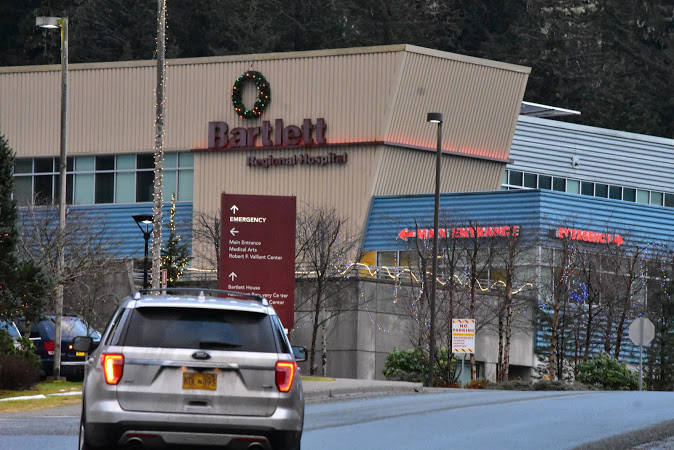As rising numbers of cases enter the hospitals in Seattle and Anchorage, Juneau considers its contingencies for medevacing critically injured patients.
“Everything we do is informed by our medical capacity,” said City and Borough of Juneau City Manager Rorie Watt. “We’re not seeing many issues here, but up north in Anchorage, they are very pressed for capacity. Down in Seattle, they are very pressed for capacity, and for different reasons.”
The University of Washington medical system hit an all-time high for coronavirus cases on Friday, Dec. 11, with 124 patients being treated for the coronavirus spread across four hospitals, exceeding its springtime peak, UW announced. The president of the UW Medicine Hospitals and Clinics, Lisa Brandenburg, urged citizens to wear masks, practice distancing, and wash their hands in a news release.
However, Bartlett Regional Hospital’s personnel is confident in their ability to continue medevacing patients in need of critical care to Seattle, even as case numbers grow.
“Alaska and Seattle hospitals have a history of working closely together. We have good communication with our health care partners north and south, and collaboratively work together regarding patient transfers,” said Bartlett Regional Hospital spokesperson Katie Bausler in an email. “While in theory we could see both cities overwhelmed, we have not yet seen that during the pandemic. We also can utilize other Washington state cities and Portland as a back-up if they are open.”
[State announces support for Texas-led election lawsuit]
Harborview Medical Center has long received patients from Juneau who have suffered trauma better treated by the more expansive facilities of the larger hospital.
“Patients can be medevaced for numerous reasons, including but not limited to heart attack, stroke, and injuries related to trauma,” Bausler said. “The decision to transfer a patient is dependent on the level of specialty care a patient may need as a result of their accident or illness.”
Some of those facilities include the provisions for providing advanced care for conditions such as strokes, heart attacks or advanced trauma. While every hospital can turn away patients if they need to, as defined by their own criteria, there are plenty of alternate options if that should be the case, Bausler said; if someone needs help not available at Bartlett Regional Hospital, they will receive it.
“It would be an absolute last resort to indefinitely hold a patient that we are not adequately prepared to treat,” Bausler said.
Every decision to transport a patient from Bartlett Regional Hospital to a different facility is undertaken on a case-by-case basis by the doctor providing care, and takes into account a large number of factors, Bausler said. Even if cases spike drastically, Bausler said, the ability to send those cases to out-of-town facilities will not be impaired.
“Unless an overwhelming COVID or other disaster surge occurs in both Seattle and Anchorage at the same time, we can still medevac severe injuries and severe medical conditions to a higher level of care,” Bausler said. “As of this date, Bartlett Regional Hospital has not experienced delays transferring patients to Anchorage or Seattle, related to hospital capacity. We typically can arrange for patient transfer within a couple days, barring weather issues.”
Juneau residents can do their part to make sure that it doesn’t become part of the problem in the same way, by having a safe and responsible holiday season, Watt said.
“As we come closer to the holiday, we expect an uptick in travel,” Watt said. “We ask that you make plans for visitors. Don’t make them create more spread.”
• Contact reporter Michael S. Lockett at (757) 621-1197 or mlockett@juneauempire.com.

